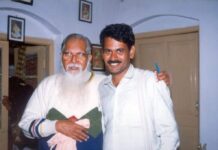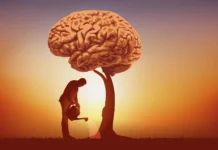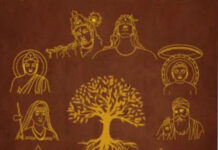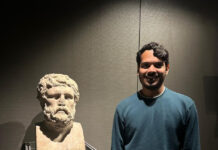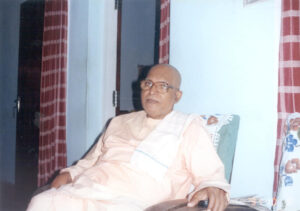
Every time there is a discussion on the subject of Philosophy, several people come forward professing an interest in it. These are usually people who have read popular books authored by masters of philosophy or spirituality-based orators or those believed to be spiritually enlightened. And many of them have indeed taken up quite an intense study of these books.
There are some common features to be found among such readers. Some of them discover these books at a point in their lives when they are in search of some sort of anchor. The philosophical ideas they are introduced to through these readings might be enough to ground them, and provide a state of stability that helps them look at problems, rising above basic emotions and mundane politics of daily life.
This is the most significant benefit of these books, and the reason I believe they are useful. At any rate, these are definitely better than books dealing with petty party politics; books that could push one into a permanently conflicted state of mind leading to a fabricated state of anxiety, depression and long-term bitterness. These books, on the other hand, lead its readers to approach life with hope and find contentment in their achievements.
Some who read books on spiritual philosophy sometimes do so without being aware of what exactly they are in search of, swinging from one school of thought to another and from one Master to another. Some even think that they have progressed beyond the teachings of their previous Guru when they latch on to a new one. I have heard declarations such as: “I used to read Osho. But now that I have found J Krishnamurthy, I have come beyond him.”
In truth, they have not gone beyond him. To truly surpass a Master, one has to reach his stage of attainment, and then go beyond. Only those superior to Osho can surpass him. When someone claims to have gone beyond Osho, it just means that he has realized that whatever he was in quest of, was not present in the teachings or discourses of Osho.
And since he himself does not fully know what he is in pursuit of, he has no clue whether he has moved forward in his quest or is simply going around in circles. Sometimes, he could even be trapped. Yet, however he reads and whatever he reads, he is bound to grow internally by this continuous act of reading. It molds him more than any of his other actions. Anything that centers a person’s focus does in some way or the other, continue to liberate him.
These readings are definitely beneficial at some level. And since they are the thoughts of intellectuals and the words of wise men, they are indeed blessings, hence rare and to be cherished.
What is to be debated is whether such reading constitutes philosophical education, and whether one can learn philosophy through them. Is it possible for one to teach himself philosophy? What is the place of self-directed education when it comes to philosophy?
The first answer that comes up is that spiritual books do prove to be a gateway into philosophy. These books being immediately available to us, we naturally drift towards them at some point in life. They help us analyze our lives in their entirety, explore the fundamentals and raise basic questions. This practice could possibly steer us towards philosophy.
For someone with a literary bend of mind, whether through reading or writing, the study of spiritual books is quite useful. This is because these books constantly attempt to convey deeply abstract and subtle intellectual ideas that are dependent on sensibility, using concrete language – something that literature and poetry attempt to do.
Therefore, the language used in philosophy texts is comparable to that of poetry – rich and concise. The highest possibilities of language are expressed here. No Indian English writer has handled the language as eloquently as Aurobindo or J Krishnamurthy. Their use of language can hone the language skills of a reader even without his knowledge.
I have noticed that people with these reading habits often quote lines that have made a mark in their minds. They cherish them as eloquent expressions of literature. And we do remember most philosophers and spiritual Masters through some of their signature statements. We measure them by those lines and that is perfectly normal and acceptable for a literary reader.
The language of philosophy is mandated with expressing thoughts in the most concise manner possible. This is because when a philosophical thought loses its pithiness, it tends to lose the essence of the philosophy it is meant to convey. People who are keen students of philosophy might have observed this. When a thought is expressed with brevity, succinctly, and in crisp words, the thought establishes itself as a visionary principle. It transforms into a definition and a declaration. This same thought, if expounded in simple language running to several pages, would turn into merely some kind of debate or discussion.
Gandhi mentions this in one of his conversations with Pyare Lal, where he speaks about Marxism. “What he says is a simple statement. But since he says it in such erudite language, it sounds like an ideology.”
As far as Gandhi was concerned, only something that stood independently as an ideology was a statement of truth. Something that survives merely on the strength of intellectual debates cannot be considered a truth. This ‘truth’, when adopted into practice, is bound to get diluted, because during practical application, it is interpreted in different words and in different ways. If this causes the concept to lose its value, then it is just an intellectual concept and not a philosophical truth.
Readers of spiritual writings sub-consciously work with a language that is dynamic, which in turn develops their linguistic sensibility. This fulfills them intellectually, leading to the belief that they are in pursuit of a higher truth.
We believe that the knowledge we acquire through hard work is true and valuable. One can never deny the sweetness of a fruit they acquire by climbing up a tree with great effort, because that would mean accepting the fact that their efforts were in vain. Here, the value of the effort inadvertently gets imparted to the fruit.
Philosophical knowledge that comes through reading is more of a literary knowledge rather than philosophical. People who read these books for their literary merit do not glean the philosophy there. Remembering exquisite lines from their reading and pondering upon them at a superficial level does not constitute an understanding of philosophy.
Philosophy is not a compilation of disparate ideas. It has always thrived as a unified concept. At the foremost, philosophy is a construct of logic, which stands on a structure composed of its chosen proofs. Beneath this is the foundation built on a certain perspective, a specific domain of experience.
Philosophy must be studied, recollected, and debated in its totality. Studying, recollecting or debating it in parts or certain parts of it can only lead to a flawed comprehension, at times even to an understanding that is completely to the contrary.
All parts of a philosophy are interwoven. It is also linked to everything it contents with and everything it has absorbed into itself. Thus it becomes embedded into all the disciplines from which it has molded itself. You cannot understand Adwaitha without the background of the six basic philosophical disciplines of Hinduism and it must not be studied without incorporating the fields of discourse of Buddhism and Jainism.
Therefore, an individual can read books on spiritual philosophy for his mental upliftment, encouragement, or satisfaction. A literary reader or writer can read it for its rich language. Or they can be read as introductory texts of philosophy. But there must be absolute awareness that this reading does not constitute philosophical knowledge and that the pursuit of philosophy is an entirely different thing.
Tranlated by Remitha Satheesh

